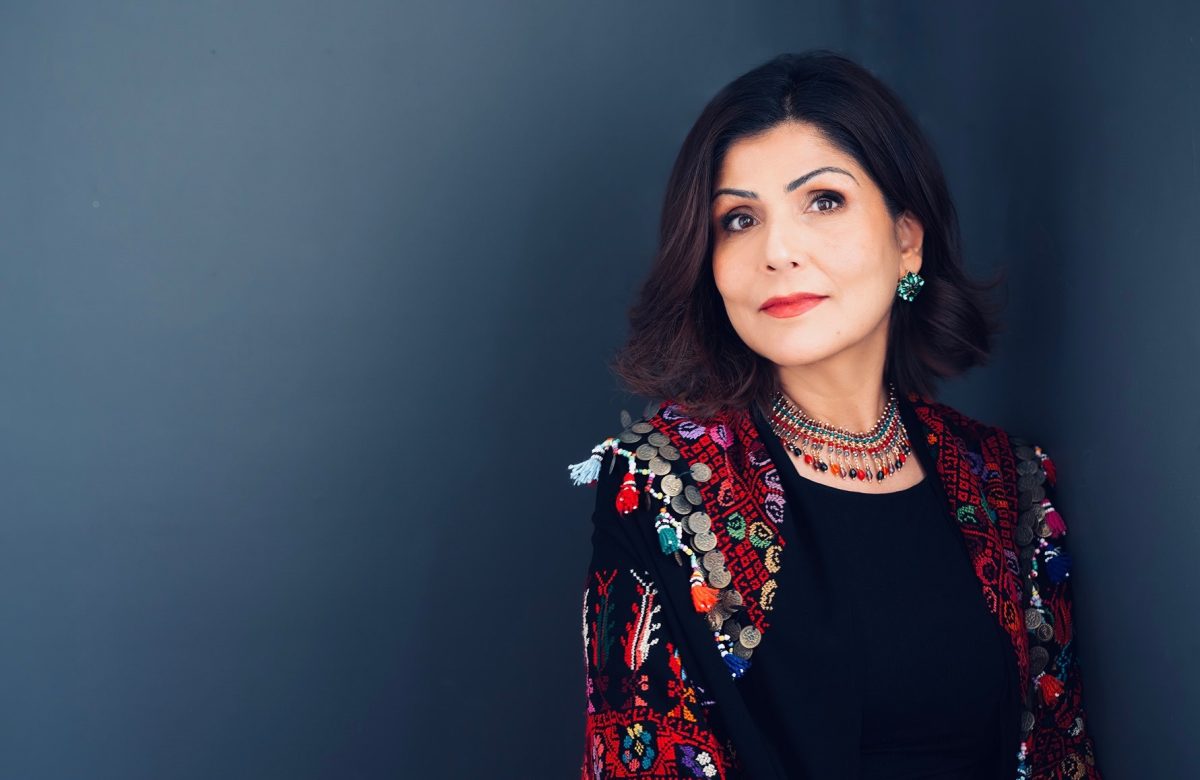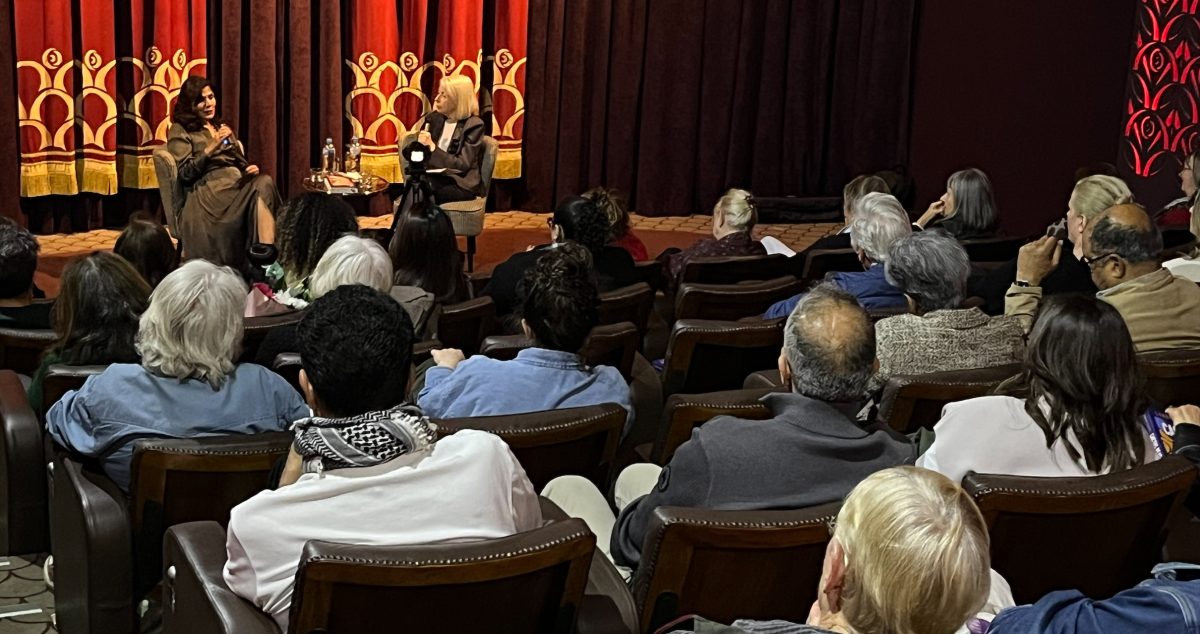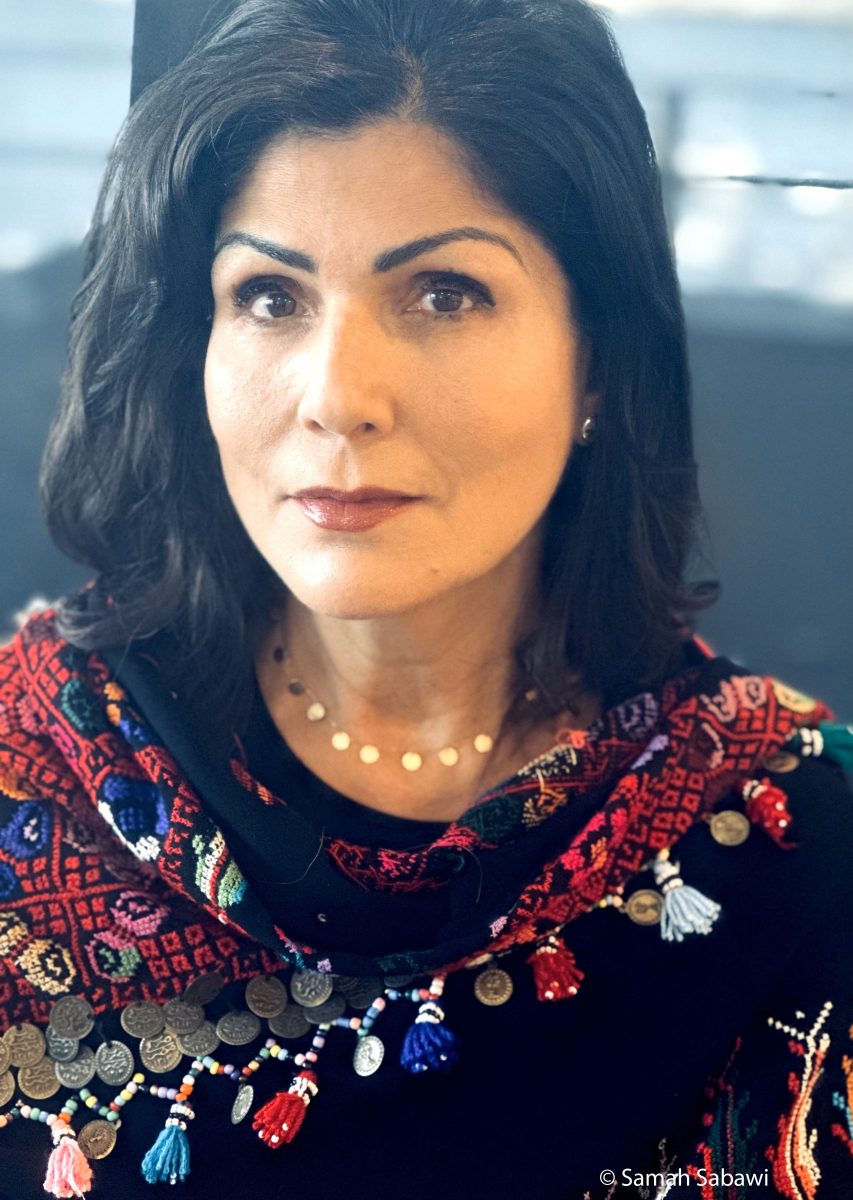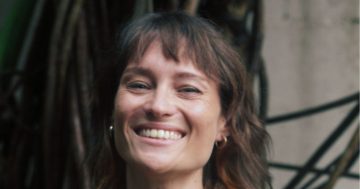
Samah Sabawi’s family memoir, Cactus Pear for My Beloved, has been shortlisted for the 2025 Stella Prize. Photos: Supplied.
Writer Samah Sabawi and her family have had a remarkable life. In the 1960s, when she was only a few weeks old, they fled Gaza to a refugee camp in Jordan.
From there they spent 10 years in Saudi Arabia, where her father, Karim, set up an import business and became a millionaire. He applied for a visa as a businessman in Australia. The family moved here when she was 12 years old.
Dr Sabawi has written a memoir of Karim’s early years in Palestine. The book, Cactus Pear for My Beloved, was published by Penguin Books Australia in September 2024. It is one of six books shortlisted for the prestigious 2025 Stella Prize.
Dr Sabawi will discuss her book at author talks in Moruya, Bermagui and Bega in mid-May.
Karim was a poet and that had a huge influence on her. She grew up in a house of poetry where there was an appreciation of the arts and communication.
Dr Sabawi said that in the Arabic language, precision was appreciated and poetic imagery praised.
She has written poetry, plays, essays and political analysis.
Writing the memoir was the final frontier for her as a writer.
“I think it was always in the back of my mind to document this story from before,” Dr Sabawi said.
She was conscious that she and her children had moved from country to country and every time people moved house, they lost something.
With her children having their own children and her parents ageing, there was a sense of urgency. She also wanted to combine writing the memoir with the research for her thesis on inheriting exile.
The book is part memoir, part historical fiction.

Samah Sabawi’s official book launch at The Sun Theatre in Yarraville, Melbourne.
Karim had volunteered in the Palestinian Liberation Army. As a wanted man, he had two choices: indefinite detention or exile.
With a young family and extended family to care for, indefinite detention was not an option.
From the refugee camp in Jordan, he took his family to live with his brother in Saudi Arabia. He worked for a newspaper and then a cement factory.
At the time, Saudi Arabia was receptive to good business ideas. The resourceful man began importing lamb from Australia and processing it into hamburgers and flavoured sausages.
Dr Sabawi said it was a harsh and restrictive life. They shared a house with her uncle’s family. The house was surrounded by high walls. There were no playgrounds and no grass, and she had to wear a veil, even in primary school.
“We were strangers in every sense of the word,” she said. “Our dialect and customs are very different from those of the people of Saudi Arabia.”
She has vivid memories of landing at Tullamarine Airport as a 12-year-old without the veil between her and the world.
“I saw grass for the first time,” she said. “Immediately I felt this was where I could belong.
“In Saudi Arabia we were foreigners, refugees and workers and they made sure we knew we could not belong, whereas in Australia we knew we were on a pathway to citizenship and that we had equal rights to others.”
Karim turned his import business into an export company and his family went from living in a desert to a sheep farm. “He gave us such a good life.”
Karim was in his 40s when he got his first citizenship, after being stateless for half his life.

Samah Sabawi is an author, playwright and poet and a recipient of multiple awards both nationally and internationally. Cactus Pear for My Beloved was born as a result of Samah’s PhD research.
The book is also a study of Gaza, the place. It has been through so many changes since Dr Sabawi first visited it as a child.
She said Gaza was a place of interest to the world, yet people knew little about it.
“They only see the rubble afterwards,” Dr Sabawi said. “They don’t see the life when no bombs are falling, how beautiful and precious it is.”
Little of Gaza’s history is recorded, so she needed the oral testimonies and deep research to piece it together.
That was how she learned her family had been displaced in 1948.
Dr Sabawi said the book had become a commemoration of something that had been lost.
“I just want to keep the memory I have of how beautiful Gaza was.”
Dr Sabawi will speak at Bermagui U3A, Bermagui Men’s Shed, on Friday, 16 May, at 10:30 am. Bookings can be made by phoning 0408 786 546.
She will also speak at Moruya Library on Monday, 19 May, at 2:30 pm. Bookings are essential, via Eventbrite. For more information, phone (02) 4474 1333.
The following day, she will speak at Bega’s Cafe Evolve at 6 pm. Book on (02) 6492 1091.








